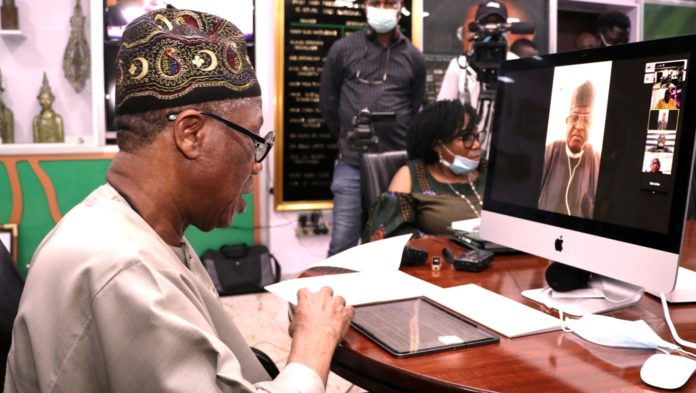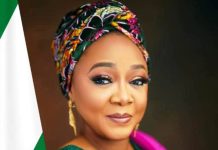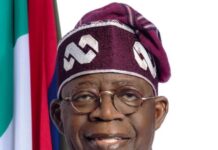TEXT OF THE SPEECH BY THE HON. MINISTER OF INFORMATION AND CULTURE, ALHAJI LAI MOHAMMED, AT THE VIRTUAL INAUGURATION OF THE TASK TEAM ON AUDIENCE MEASUREMENT IN ABUJA ON TUESDAY, 2 JUNE 2020
1. Good afternoon, ladies and gentlemen, and welcome to this virtual inauguration of the Task Team on Audience Measurement. Though I announced the establishment of this Task Team in Lagos on March 5th 2020, the COVID-19 pandemic has delayed its inauguration. But here we are today!
2. I want to most sincerely thank you all for accepting to serve on this all-important team. I commend your sacrifice and patriotism, and I have no doubt that you will put in your very best into making this assignment a success.
3. Ladies and gentlemen, with this Task Team, we are today heralding a new dawn in our Broadcast Industry. The Digital Switch Over (DSO) of our television from Analogue is now well underway, and we are set to announce a new, accelerated agenda, in order to ensure that the DSO becomes a veritable tool to help lift the Creative Industry out of the crippling effect of COVID-19.
4. Audience Measurement is the missing link in the entire ecosystem and it will make our DSO sustainable for Signal Distributors, Channel Owners, TV Content Producers and Advertisers. Without it, we will not see the growth in our television and the value creation in the Creative Industry that the economy and people of Nigeria so need. We need an objective and scientific Audience Measurement System that articulates the value of the content to consumers, as well as the value of the audience to advertisers, particularly in the television sector.
5. The absence of a world class measurement regime has resulted in under-investment in the sector, which is necessary to foster the growth of the industry, as the Advertising community continues to rely on subjective factors when making decisions on the content they want, as opposed to how many viewers the content truly attracts.
6. As a consequence, television platforms are subjected to renting out space on their channels to sustain their businesses, and content producers are at the mercy of sponsors which, unfortunately, skews the authenticity of their creative output in favor of a few decision makers, instead of the millions of TV viewers.
7 The existing model will never enable Nigeria’s Creative Industry to reach its full potential. It stunts the quality of the content that can be created and also limits the capacity of television platforms to invest in dynamic contents that consumers will be attracted to.
8. Furthermore, the value of Nigeria’s Broadcast Advertising Market is not proportional to the country’s population, when compared to the Top 3 Markets in the Sub-Saharan Africa. Despite having a population more than three times that of South Africa, Nigeria’s Television Advertising Revenue in 2016 was US$309 million, compared to that of South Africa, which was US$1,301 million.
9. It is imperative that we urgently put in place an Industry Framework that will ensure that content producers receive their just due for the value of the content they create, as well as provide objective guarantees to the Advertising community on their Return-On-Investment on media placements. This will then have the overall effect of guaranteeing greater spend by the Advertisers, who are all seeking to grow their market share.
10. This Industry Framework can only happen if the Ministry of Information and Culture, which fortunately supervises both the Broadcast and Advertising industries, serves as a catalyst for putting in place a robust Audience Measurement System that is in line with global standards and supports the realization of the immense potential that the Nigerian Creative Industry holds.
11. Currently, government is subsidizing the signal distribution because the channels cannot pay for the carriage of their stations by the licensed Signal Distributors, who have invested in equipment and transmission. Things cannot continue like this. Government cannot continue to subsidize television forever, hence we must create a sustainable ecosystem.
12. The Broadcast Industry needs an Audience Measurement system that will encourage investment, mainly through increased Advertising spend driven by confidence in the Audience Ratings data. An incremental Advertising Revenue will encourage current and prospective channel owners to create additional television channels necessary for the success of Digital Terrestrial Television (DTT).
13. In light of the above, I am today inaugurating this committee of industry experts to help solve the Audience Measurement issue in Nigeria, once and for all. The Terms of Reference of the Task Teams are:
– Identify best practice Audience Measurement System that will support the sustainable growth of the Nigeria Creative Industry;
– Recommend a Framework for supporting the sustainability of the Audience Measurement System, independent of the Federal Government;
– Recommend a Payment and Disbursement Framework among the key stakeholders in the industry, that is, the Broadcasting Organizations of Nigeria (BON), Media Independent Practitioners Association of Nigeria (MIPAN) and the Advertisers Association of Nigeria (ADVAN).
14. Ladies and gentlemen, bringing Nigerian TV advertisement market to what it should be, which is two to three times the current size, could result in additional US$200 to US$400 million of revenue to the industry. This is our next task and we invite all well-meaning practitioners in this industry to join hands with us to achieve this.
15. The members of the Task Team, which has six week to submit its report, are:
1. Alhaji Garba Bello Kankarofi (Chairman)
2. Mr. Obi Asika
3. Hajia Sa’aa Ibrahim
4. Mr. Mahmoud Ali Balogun
5. Mrs Pauline Ehusani
6. Mr. Tolu Ogunkoya
7 Mr. Joe Mutah (Secretary
16. And now, ladies and gentlemen, it is my pleasure to inaugurate the Task Team on Audience Measurement.
17. I thank you for your kind attention





